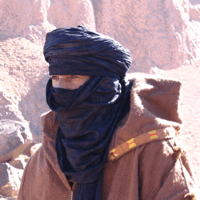Since returning to civilian rule in April 2011, Niger has achieved a measure of political stability. In July, President Mahamadou Issoufou weathered his first major domestic crisis, a coup attempt, whose plotters were arrested by authorities soon thereafter. The president recently increased the salaries of civil servants and reduced the costs of electricity and water, moves calculated to address economic grievances. Critically for this impoverished country, external donors regard Issoufou’s administration favorably; aid suspended after the February 2010 coup that removed former President Mamadou Tandja from power has been restored or increased. Finally, a small amount of oil -- around 20,000 barrels per day -- has begun to flow in Niger, and a refinery run jointly by the state and the China National Petroleum Corp. is producing fuel for domestic consumption.
These successes are certainly encouraging for a country whose domestic challenges include severe rural poverty and the weak institutionalization of democracy. But Niger’s progress is increasingly threatened by regional crises originating from neighboring states that include political discontent among Tuaregs, violence and refugee flows, food insecurity and terrorism. The combined effects of these crises threaten to make life in Niger even harder.
Tuareg anger at Sahelian governments stretches back decades. Many Tuaregs feel marginalized by governments whose capitals lie far from their lands, with resentment particularly arising from the way these governments have handled droughts and famines in the past. Tuareg rebels regard the region’s present national boundaries as artificial colonial creations, and say they would prefer to live in an independent Tuareg state. In the postcolonial period, Mali and Niger have been centers of rebellion, with uprisings occurring in both countries in the 1990s and from 2007 to 2009.

